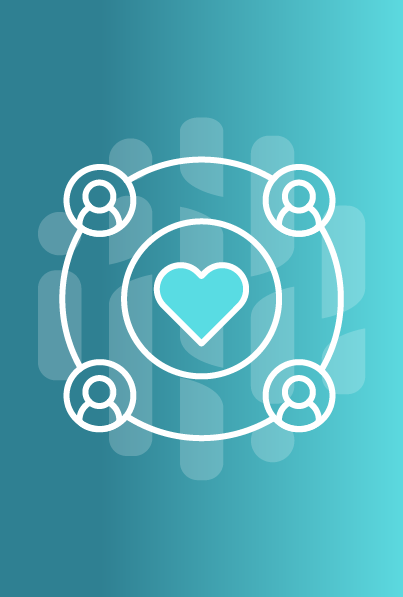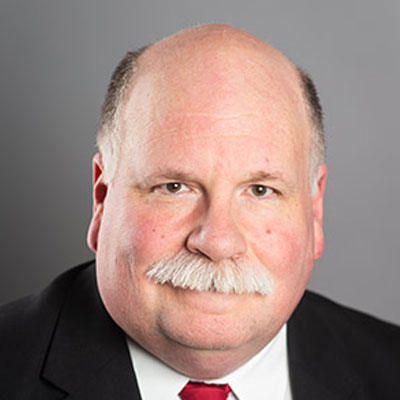People Are the Heart of AIR

I remember well my first AIR Forum. The year was 1997 and the Forum was in Orlando. I was relatively new to institutional research (IR), and the convergence of so many IR people at the national meeting was both exhilarating and a little bit intimidating.
At some point early in the conference, there was a coffee break. I remember going into a large room filled with round tables covered in white cloth. People were starting to mingle, and I was looking around hoping to see one or two SAIR colleagues I knew. I grabbed a cup of coffee, a Danish, and metaphorically hid behind them. Seeing nobody I knew, I looked around for a place to sit down.
I saw a gentleman sitting alone at one of the tables. He looked somewhat dapper in his coat and tie, and I had the impression that he had been associated with AIR for at least a few years. I decided to go to his table and try to strike up a conversation. I gave him a cordial greeting and proceeded to sit down.
Now, I don’t know how familiar you are with reception tables. The table cloth touches the floor and the legs are never where you think they should be. As I tried to sit down with grace and style, my knee hit a table leg followed by a sharp pain that traveled up my leg. I had to quickly steady my coffee and Danish so they wouldn’t fall to the ground.
What I didn’t realize until I sat down and composed myself was that my incident with the table leg was so violent that it caused the coffee cup of the gentleman I was sitting beside to dump its contents all over the table. Without hesitation or alarm, he just picked up his saucer and dumped the spilled coffee back into his cup, then tried to blot the coffee that spilled on the table with his napkin.
I quickly apologized as I tried to help him. He assured me that everything was fine and we proceeded to sip our coffee and engage in small talk. As it turned out, he had attended many Forums. I asked if he was on the Board. He indicated that his forte was writing and that most of his free time was spent working on a book.
This information he relayed was of great interest to me. After all, I had a few articles published and I wanted to do a lot more academic writing. The rest of our time was spent with him giving me advice on the academic publishing world. He was both very kind and helpful. As the break was winding down, we both got up to go to our sessions. I realized that, with my abrupt table escapade, I had forgotten to introduce myself. We shook hands. It was then I found out I had been talking to Patrick Terenzini.
As he walked away, I wanted to babble off something to him about how much of his work I had read during my graduate studies, or how I cited him in some of my own work. However, I just stood there looking at the coffee-stained table cloth.
Sitting in my session, I pondered the advice Dr. Terenzini had given me. I wondered why he spent so much time talking to a greenhorn like me. After all, I had just flung coffee all over the man and he could probably tell that I was somewhat out of my element. He could have just gotten up, looked at me with grimace, and walked away like I’ve seen so many other veteran higher education professionals do with cubs like me. Why was I a worthy candidate of his time?
I learned that Dr. Terenzini was not the exception. People associated with the field of IR are different from other higher education professionals. We are a lot more open and approachable. Throughout my long career, I have found many of these mentors. Some I became good friends with while others may not ever know the extent to which they helped me.
I met these people at conferences and other gatherings while eating a meal, walking down a hallway, attending a session, or presenting a paper. They offered guidance, encouragement, and support. As a young pup, I realized that I was not alone in the profession. Soon, I met more people like me who were newer to the profession and we became close colleagues. Even now when I need some guidance or advice on a project, I know that both these colleagues and mentors are just a phone call or email away.
Now that I’m older, I find many of my mentors and colleagues have either retired or are no longer with us. I miss their friendship and their intellect. However, I’ve also come to the realization that I have become one of the veterans. I am now one of the graying warhorses standing sentinel to the strong ethics and traditions of IR. I have many younger, less experienced people coming to me for advice and guidance. I willingly share with them the knowledge I learned from others as well as the experience I gained myself. Thus, the circle of our professional life continues and IR moves forward.
To the young IR professionals, I say seek out the veterans. Don’t be afraid to ask us questions or get our advice. After almost 30 years in this profession, I can safely say that your enthusiasm and quest for knowledge will be welcomed. Since you have decided to confront the beast of insurmountable data, IPEDS reports, and rankings surveys, you have bravely and deliberately joined our unique group. We welcome you.
To those of us who are more experienced, we need to continue the wonderful tradition of what those great IR veterans of the past did for us. We all know that much of what we do in IR is not “textbook.” While we all had to fly by the seat of our pants at some point in our careers, oftentimes we had experienced mentors to help us navigate. We need to be those mentors.
That is the nature of IR. We are a group of dedicated professionals who love collegiality and sharing knowledge. To that extent, IR is actually more about people than data. So, the next time you see me sitting at a table, come by and sit down for a moment. I’ll try not to spill coffee on you.
 Andrew L. Luna, Ph.D is Executive Director of Decision Support and Institutional Research at Austin Peay State University.
Andrew L. Luna, Ph.D is Executive Director of Decision Support and Institutional Research at Austin Peay State University.
